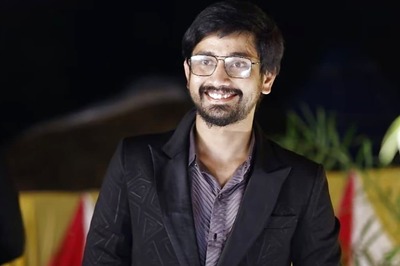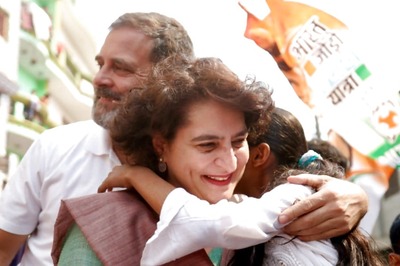
views
New Delhi: Forensic evidence critical to investigation of Friday’s bombing outside the Embassy of Israel was missed by crime-scene teams of the Delhi Police, highly-placed intelligence sources have told News18. The Delhi Police had lifted crime-scene barriers early on Friday morning—even allowing in cleaning staff—before shutting down the area again after central government agencies discovered shrapnel and bomb components scattered in nearby lawns and homes.
The revelation of errors in the crime-scene management come as the Union Government is considering handing over the investigation of the Embassy bombing to the National Investigation Agency (NIA).
Israeli diplomats, a senior intelligence official said, usually left the Embassy premises around 5 pm, but some key staff had been delayed because of a meeting that dragged on. The official declined to identify the officials whose vehicles appeared to have been targeted.
“There’s the distinct possibility that whoever carried out the act had carried out reconnaissance on the movement of these diplomatic officials, and timed the explosion accordingly,” a senior official said.
Fragments from the bomb, including parts of the circuit-board which likely controlled the timing of the explosion, were found scattered as far as the lawns of former Member of Parliament and industrialist Naveen Jindal’s residence on 5 APJ Abdul Kalam Road, over a hundred metres from the bomb side.
The bomb, sources at the Forensic Sciences Laboratory in New Delhi said, had been packed with metal shrapnel, including ball-bearings, a well-established technique to maximise the lethality of improvised explosive devices.
“Anyone near the bomb when it went off would likely have been killed or maimed,” one forensic expert with knowledge of the investigation said. “It is possible this was a carefully-planned assassination attempt”. The official, however, also said it was possible the bomb may have detonated at a time other than that intended, due to problems in the circuit-board or construction.
ALSO READ| Energy Drink Can Used for Israel Embassy Blast, Probe Team Suspects; ‘Odd’ Explosives Mix Casts More Doubt
The bombers, a Delhi Police source said, appeared to have carefully selected an area without line-of-sight coverage from closed-circuit television cameras planted to surveil the road. However, low-quality footage of two potential suspects has been obtained from a nearby Canadian diplomatic facility, and is being digitally enhanced, he added.
NIA sources said they would pursue several lines of investigation, including the possibility that the attack was carried out by Iran-linked intelligence services or their proxies, as well as other terrorist groups.
“There’s a long list of people with reasons to carry out such an attack,” an NIA officer said, “but you have to come to a determination of who the perpetrator is based on evidence, not on possible motives. This will likely take some time. As things stand, we have little to work with”.
Errors of procedure and investigative protocol have earned the Delhi Police judicial reprimand in several past high-profile counter-terrorism cases. In 2012, Tal Yehoshua Koren, the wife of an Israeli diplomat, was targeted in an attempted assassination attempt—part of a series of Iranian intelligence-orchestrated strikes in New Delhi, Tbilisi and Bangkok.
The Delhi Police had arrested journalist Syed Mohammad Kazmi for his alleged role in Koren’s assassination, but failed to file charges against him within the legally-mandated period. No convictions have been obtained in the case.
Earlier, the Supreme Court had pointed to multiple procedural errors and lapses in handling evidence by the Delhi Police in its investigation of the 2001 terrorist attack on Parliament.
Israel—alleged to be responsible for the assassinations of top Iranian nuclear scientists—was last week reported to be considering the sanction of an additional $918 million for its armed forces to develop capabilities to hit facilities involved in Tehran’s strategic weapons programme. The bomb strike, some intelligence officials believe, could have been intended to signal that Iran would respond to attacks by striking at Israeli facilities worldwide, as it did in 2012.
Without a full-time head for almost a year—Delhi Police commissioner SN Shrivastava was given additional charge of this responsibility in February 2020—the Delhi Police’s has been battered by a succession of crisis.
The force faced sharp criticism for its failure to anticipate and contain the communal violence which broke out in New Delhi last year. Its handling of the farmers’ protests in New Delhi has also led to claims of failure in command-level executive leadership.
Read all the Latest News, Breaking News and Coronavirus News here



















Comments
0 comment